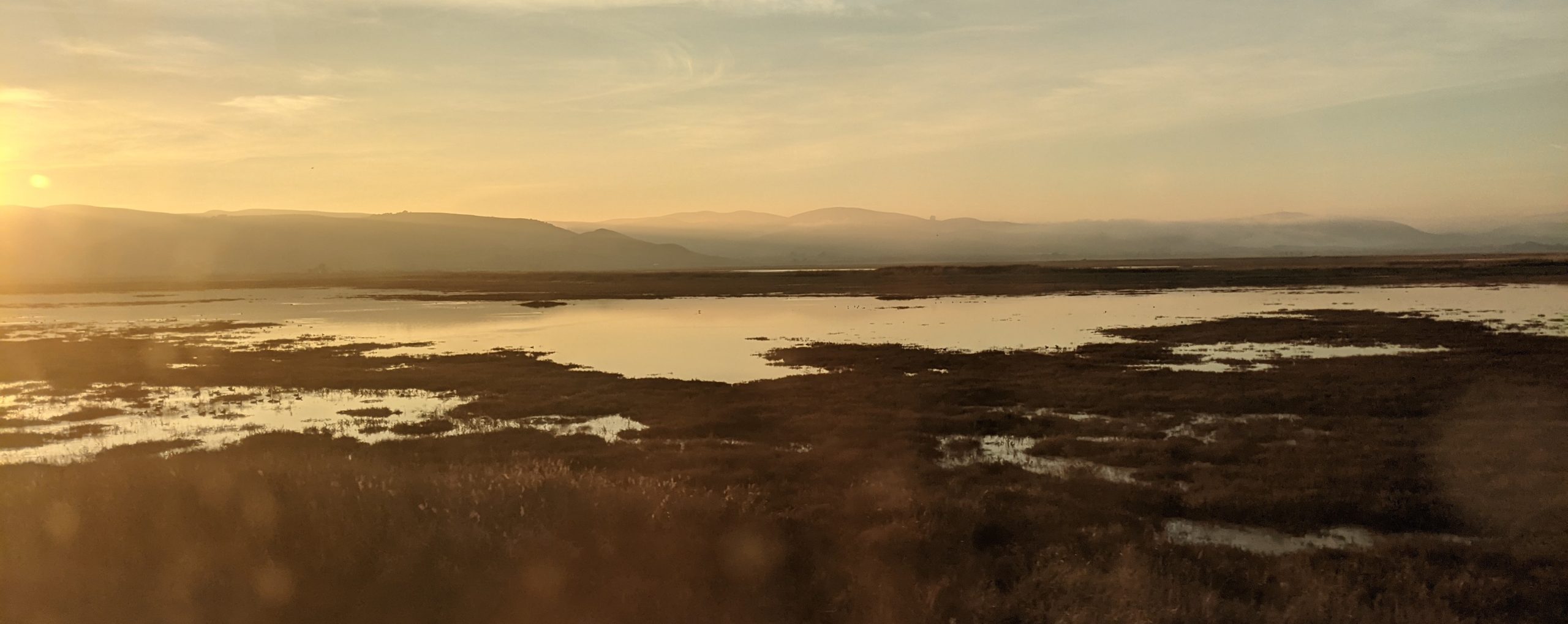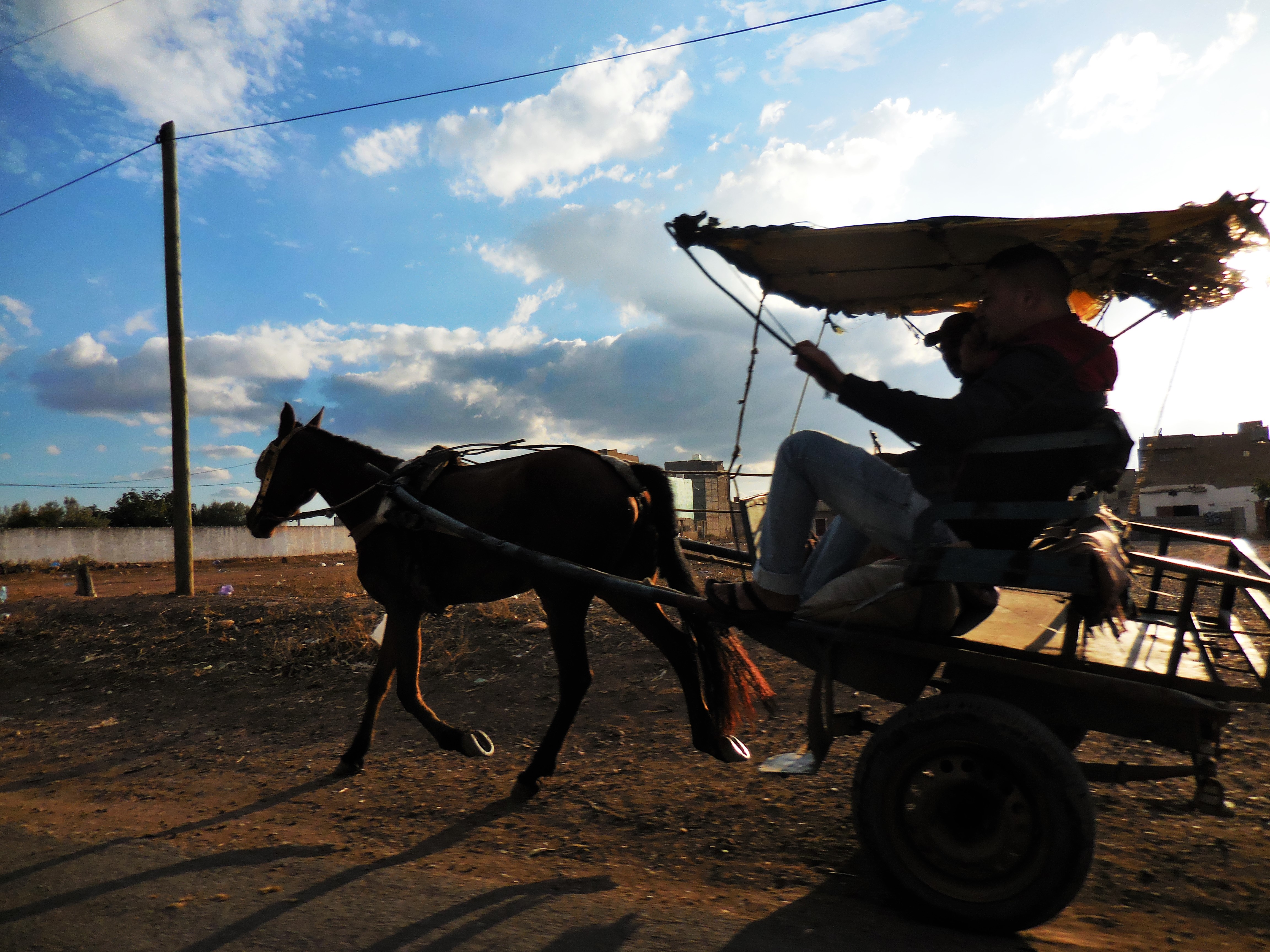Sorry for the delay in updates! The “study” part of study abroad has been slowly taking over our lives, though certainly not to Harvard extent.*
Last last weekend, we took our final class trip, mislabeled the “village stay”. Sidi Hajjaj, far from being a village, is a bustling town-city of 70,000 people in the middle of the countryside near Casablanca. It’s also part of what our teachers called the “triangle of death”. I’m still not sure what the dimensions of the triangle are, but it’s an area that encompasses Sidi Hajjaj, as well as the cities of Khourigba and Beni Mellal, and it’s known as such because of the number of migrants from this area whose lives have been lost by sea on the way to Europe, mainly on the way to Spain and Italy. During our stay in the area, we were able to talk to some of the migrants who were able to come back; more than anything, it was a weekend for stories.
One of the first things you notice coming into Sidi Hajjaj is that all the signs in the area are written in Berber—even more, surprisingly, than in the places in the Rif. The triangle is a rural area, one side on the foot of the Middle Atlas, the other in the midst of dry rolling plains and farmland. Some of the surrounding area is green, and the center of Sidi Hajjaj is planted with trees and vegetation. After the dryness of much of the north, it looked like Ireland.
We stayed with host families in Sidi Hajjaj, and my friend and I had the unique privilege of living on a camel farm about five kilometres away from the city. Needless to say, this was incredible— the entire extended family lived in the middle of the farm in conjoined brick houses, far from the rest of the world, with about seven massive salons total, sprawling terraces, and even an olive tree. The whole family was thrilled to host us for the two days; they were incredibly generous and fed us more than we could’ve eaten in a week (and kept on making jokes about the 15 kilos of meat they planned to feed us vegetarians). The farm had cows, sheep, horses, and, of course, camels. Our host dad and little sister took us out the second evening to see three of them, including one that was particularly ornery because of the lack of flea-less females around. Our host dad mentioned casually that in another enclosure, there were 60 more camels, but they all had fleas so we couldn’t see them—and that during certain times of the year, when the Saudis would come and buy them for meat, there would be over 200. The family sells the camels all over Morocco, from Oujda at the Algerian border to the Sahara in the south. The best analogy of the feeling of the farm that I can give is to Tatooine from Star Wars—when we walked out in the evening to see the camels, the moon was out and the call to prayer was strong, and it was truly different from anything I’d ever seen before. I joked that “when we say we’re in Morocco, this is what people probably think we do every day”.
Besides the camel farm, were the classes we had—some of the best yet. Even talking with many of the host families, we learned how common immigration, and return migration, is in this region. Our host dad had lived in France for decades, only having returned as an older man to start a family in Morocco. Another host family had a daughter who lived in Italy; another, someone in Spain. The man in Sidi Hajjaj with whom we talked during class time had migrated to Spain and Italy, to return 20 years later to be with his family. This was a common theme among all the people with which we spoke. In Beni Mellal (beautiful city, at the foot of the mountains), which we visited afterwards, we spoke to someone with a crazy journey (an adventure, as he told it)—he’d lived in Hamburg, New York, and California, before having returned to his hometown to be with his mother. “If I had died,” he told us, “she wouldn’t have known”. Listening to peoples’ stories and being able to (somewhat) engage with them, I think, is one of the most valuable things that we do in class—it brings breath to the readings and lectures and news reports.
I was reminded of these stories when today, I was watching the English news with my host family (they put it on every few days to keep me updated on the goings-on of the world), and I was roughly translating the news about immigration and drug trafficking on the Texas border. As we watched the events unfold, Mexican immigrants lying in a train car, being apprehended by the police, my host mom said that she worried about the past girls she’d hosted, out there in America, and talked of her sympathy for the immigrants, “packed in there the same as cattle”. Before I went to Morocco—and even now— people worried about my safety studying abroad in a non-European (or Australia) country. And because of what and where I’m studying, people from the US are constantly talking with me about the packed boats of people across the Mediterranean that they see on TV. I’m not sure what my point is here, or if I even have one, but the parallel was thought-provoking to me.**
The world is a huge, diverse place, but our stories and worries and loves repeat themselves over and over. Though I’ve heard this so many times, this is clearer to me than ever, not only in theory, but in experience. It’s one of the reasons that I would encourage more people to study abroad or take time off from college, and particularly, I would say, with a host family. In the hyper-individualistic and often isolating culture of an elite American university (though I’d imagine this is not solely an elite university nor an American problem), it becomes easy to forget that somewhere, there are people that would give up fortune and a schoolbus driver, just to be with their family, and that somewhere, there are people who worry and pray for us.
*We were still able to go to Fes last weekend. It was very cool—especially our hour-long visit to a nomadic herbalist— but I’m not sure if I can write an entire blog post on one day’s experience.
**After the end of my time here, I will write a long, long something about migration, possibly here, possibly in a personal newsletter sent to the people I know have been reading the blog. But today is not that day.

